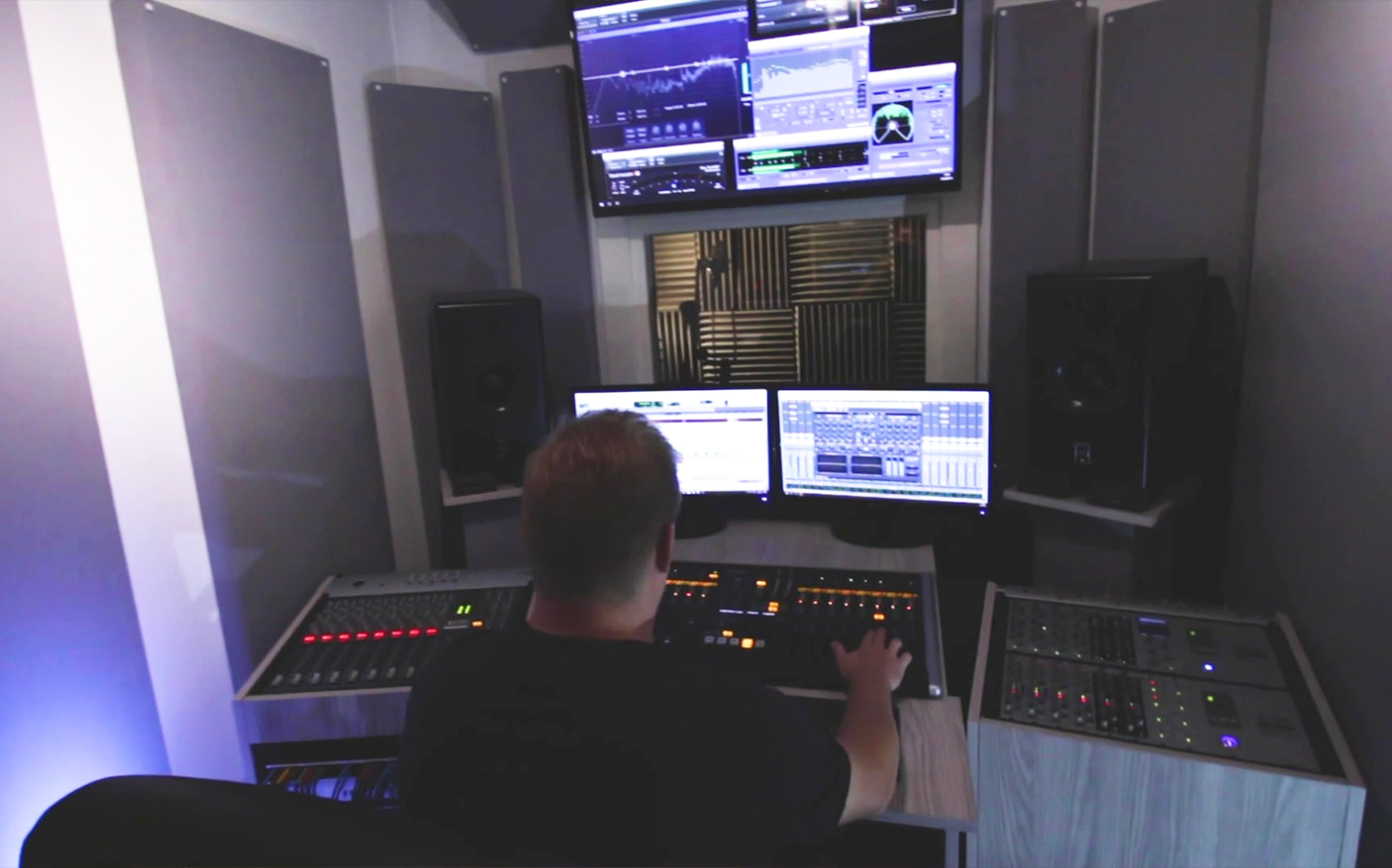Within this article we are going to go through 10 common words or phrases we use a lot in the studio that we’ve noticed return a blank stare from some people we have worked with. We hope by listing these common words and phrases it will help educate and next time you find yourself in conversation with a studio professional you will know 100% what they are talking about. So here goes in no particular order.
1. Hot. this term does not mean your mix is fire as the kids like to say these days. It refers to analogue consoles and analogue devices that when run hot can sound better or can sound worse. It depends on the device and what you are aiming to achieve. This is like peaking into 0db in the digital domain. But when working in the analogue domain such things as summing console become more musical and even start to sound warmer the hotter you drive you input into them.
2. In The Box / ITB. This phrase or abbreviation refers to the environment you are working in. In the box refers to working in the computer using digital plugins. This is abbreviated to ITB. So if you are using a DAW and VST plugins and instruments you are working ITB.
3. Out The Box / OTB. OTB is the opposite to ITB. ITB being in the box. OTB being out the box. Out the box refers to an engineer or producers working in the analogue environment out the box with analogue synthesizers and analogue summing consoles.
4. Peaking / Peaking Into The Red. This word refers to when audio is hitting 0db and peaking into the red. The reason this is bad is because audio that peaks above 0db is not recorded. At this point converters clip and distort. If engineers tells you you are peaking adjust the input volume so you are not. I like to peak around -3db.
5. Summing. This word refers to the adding together of channels being sent to a mix/master bus. A summing console is much like a DAW. You will have each channel adding together (summing) to create the summed (equals) audio that is sent to the mix bus. Summing is just another word for adding audio together to create a mix. For instance if you had a drum mix. Channel 1 – kick stem / channel 2 – snare stem / channel 3 – hi hat stem. If you play all 3 of these stems together the sound coming out the mix bus is the 3 channels summed (added) together.
6. Patchbay. A patchbay is a very simple patching system that allows you to connect equipment into other equipment easily using a front panel rather than reaching around the back of each device. The reason every studio has one is because it makes life so much easier to connect equipment on the fly.
7. ME. This is a term I never like to use but have heard it a great deal in some studios and as I am one I’m often referred to as a ME. ME is an abbreviation for mastering engineer. Don’t ask me why but some people think it’s cool to say I guess. As you can tell I’m not a big fan of the term.
8. M/S / Mid Side. Mid side such as mid side EQ is when you use a single EQ to just EQ the information in sides or width of the track. So think of if you had an EQ on the sides and you turned the gain up on the high shelf. The width or sides of the track will become brighter but the mono or centre or mid information will stay untouched. The mid EQ will then EQ just the mono or centre information. The reason this is good is because you often will want to increase the bass in the mid / centre of the track but not in the sides / width of the track. Using mid side you can do so.
9. Total Recall / Recall. A recall refers to saving the settings in order to recall them for the session later on. If you are asked to recall the session and you are working in an analogue studio you will need to use recall sheets to dial in each analogue equipment’s settings. Often options include taking pictures of the equipment faces and reffering to them to recall the settings. We use a thing called Total Recall by Solid State Logic. This feature allows you to instantly save in digital form on the SSL console the exact session settings. This make recall so much faster.
10. Get the kettle on. At Audio Animals we love tea. It doesn’t matter if you are the lead engineer or the apprentice. You are all equals when it comes to making tea. Get the kettle on might be called across the room or down the hall if it is your turn to make the tea. If you do not know how to make tea you will have to learn fast. This skill goes at the top of your CV by the way.

